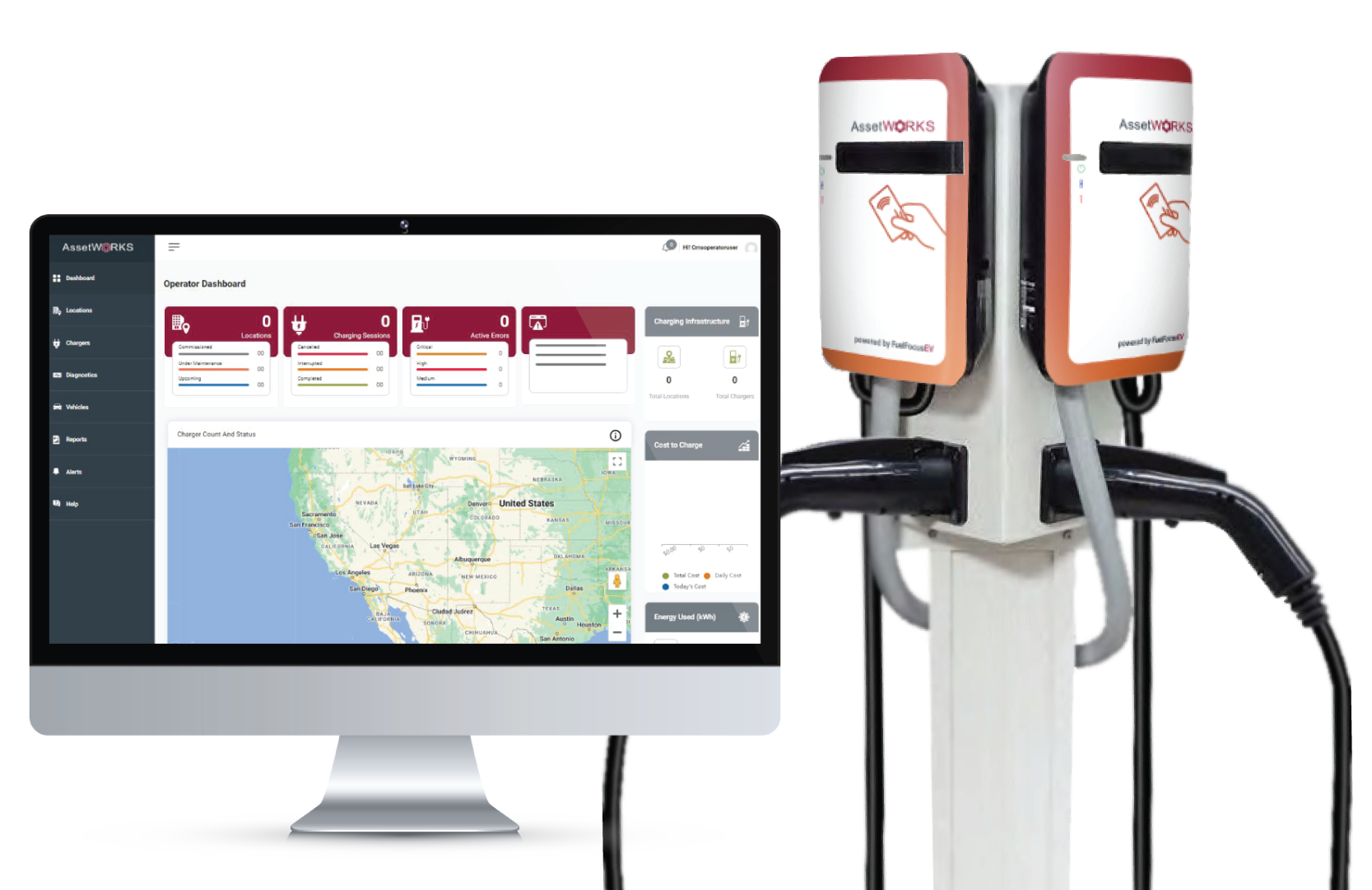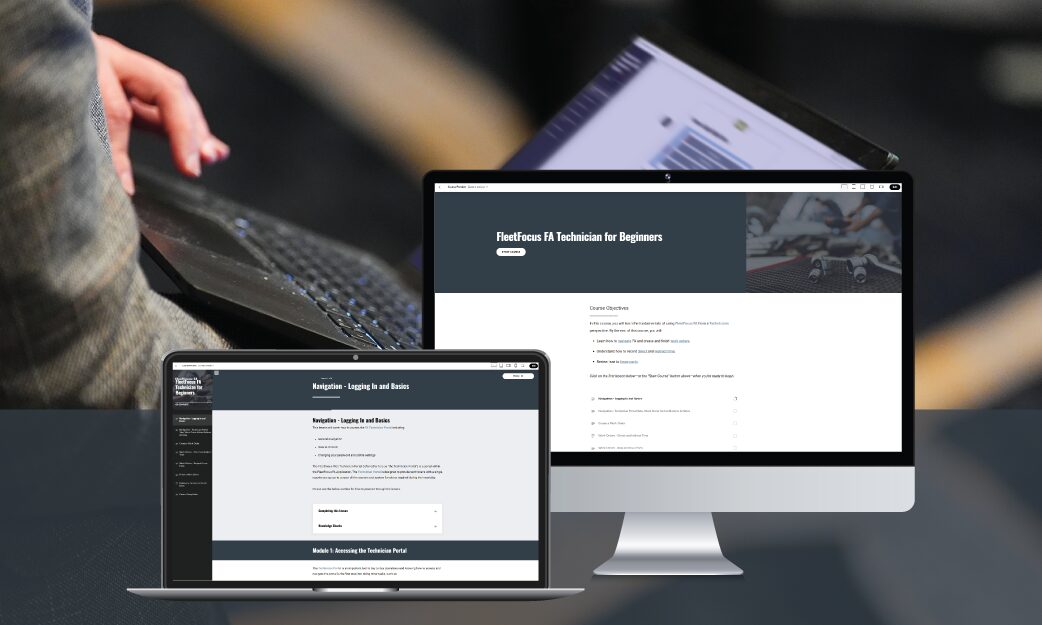Electric vehicles (EVs) are no longer a niche option in fleet management; they’re becoming essential. With the growing adoption of EVs, efficient charging systems are key to maintaining seamless operations. Whether you’re just beginning to electrify your fleet or taking steps to optimize your current setup, understanding how to streamline EV charging is crucial. This blog dives into practical strategies, key considerations, and tools like FuelFocusEV to future-proof your fleet’s EV charging infrastructure.
Why Efficient EV Charging Matters
Fleet electrification brings logistical challenges, particularly around energy consumption and charging infrastructure. Outdated systems or inefficient setups can lead to delays, operational bottlenecks, and increased costs. Streamlining your fleet’s EV charging not only ensures operational efficiency but also supports environmental responsibility and aligns with government sustainability mandates.
A charge management solution (CMS) allows you to tackle these challenges head-on. But before upgrading your systems, it’s important to understand how your current setup can be reconfigured or optimized. Let’s start with the basics.
Understanding Charge Station Management Systems (CSMS)
Charge Station Management Systems (CSMS), sometimes referred to as CMS software, is the backbone of EV charging. It provides centralized control over your fleet’s charging operations, enabling:
- Real-time monitoring of all chargers.
- Load management to distribute electricity efficiently.
- Integration with fleet management software for detailed reporting and analytics.
- Mitigation of energy overuse by leveraging off-peak charging rates.
Without an intuitive CSMS in place, managing a growing fleet of EVs can quickly become overwhelming, especially with increased energy demands and diverse operational schedules.
Key Considerations for Optimizing EV Chargers
When reconfiguring or upgrading EV chargers, a strategic approach ensures efficiency and cost-effectiveness. Here are essential factors to evaluate:
- OCPP Implementation and Compliance
The Open Charge Point Protocol (OCPP) ensures standardization between chargers and charge management systems. However, many older chargers only partially comply with these standards. Confirm whether your chargers meet OCPP standards and, if not, assess whether they can be upgraded or reconfigured. Some older models may require software updates or even hardware modifications to enable compatibility. - Charger Age and Condition
Reconfiguring EV chargers doesn’t always make sense for older units. Chargers that have exceeded their useful life, show signs of wear and tear, or rely on outdated hardware (e.g., 3G modems) may not justify the investment. Conduct a detailed inspection to determine whether reconfiguration or replacement is more practical. - Connector Compatibility
Charging technology and standards have advanced rapidly. Older chargers may be incompatible with modern connector types like NACS, creating operational hiccups. Evaluate the connectors on your fleet and chargers to ensure compatibility. This step is especially critical for fleets expanding their EV roster.
Overcoming Connectivity Challenges
EV chargers typically operate using 4G cellular, Wi-Fi, or Ethernet. Connectivity can often present challenges, particularly in rural facilities or outdated hardware configurations. Consider these best practices for avoiding disruptions:
- Replace modems in chargers if they no longer align with current cellular carrier requirements.
- Install strong Wi-Fi access points to remedy unreliable cellular connections.
- Test connectivity during any reconfiguration phases to avoid unexpected downtime.
Addressing these potential issues upfront will save time and resources in the future.
Best Practices for Streamlining Fleet EV Charging
Fleet managers and facility leaders recommend implementing the following steps for seamless charging operations:
- Starting Small with a Pilot Program
Before overhauling your entire fleet’s charging system, perform a pilot program. Select one or two chargers for reconfiguration, evaluate their performance, and test new configurations in real-world conditions. This allows you to identify any barriers and refine your process before scaling across your fleet. - Evaluate Site Conditions
Conduct site visits to inventory chargers, documenting serial numbers, hardware conditions, connectivity, and overall readiness. Gathering data upfront ensures a smoother reconfiguration process and helps prioritize upgrades. - Test CMS Control and Connectivity
Integrate your charge management system with the selected chargers and test essential functions. Ensure CMS access control, load balancing, and data reporting function properly to guarantee reliability.

Introducing FuelFocusEV
When it comes to managing fleet EV charging, FuelFocusEV goes beyond the basics to deliver comprehensive, integrated solutions tailored to your fleet’s needs. Designed with flexibility and efficiency in mind, FuelFocusEV includes the following features:
- Real-Time Data Monitoring: Get live updates on energy consumption, charging times, and vehicle readiness.
- Intelligent Load Balancing: Ensure your fleet never exceeds energy limits while optimizing charging schedules based on peak and off-peak rates.
- Integration with Fleet Management Systems: Manage fuel, energy, and EV charging within a single platform.
- Automated Reporting: Analyze overall energy consumption with preset reporting formats, saving time on manual calculations.
FuelFocusEV is built to handle the complexities of modern fleet charging with ease, offering tools to optimize energy use and reduce costs.
Seamless Integration and Support
Transitioning to or optimizing EV charger setups can feel daunting, but FuelFocusEV simplifies this process. Our team works closely with fleet managers to:
- Conduct site assessments.
- Recommend compatible hardware and connectors.
- Provide training for your team to maximize system potential.
Additionally, FuelFocusEV integrates easily with existing fleet management software, creating a seamless experience for managing both EV and traditional fueling operations.
Future-Proof Your Fleet
Efficient EV charging is no longer optional. With growing regulatory demands and an increasing focus on sustainability, having the right systems in place is mission-critical for any fleet. By investing in modern solutions like FuelFocusEV and following best practices for charger optimization, you can ensure your fleet stays ahead of the curve while reducing costs and downtime.












